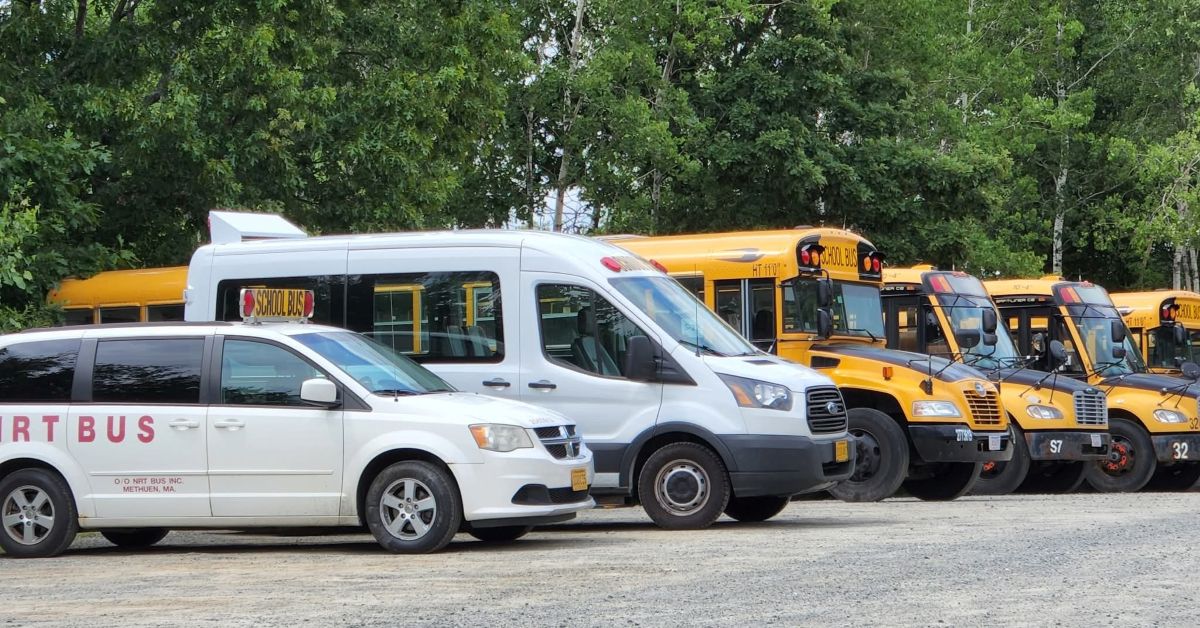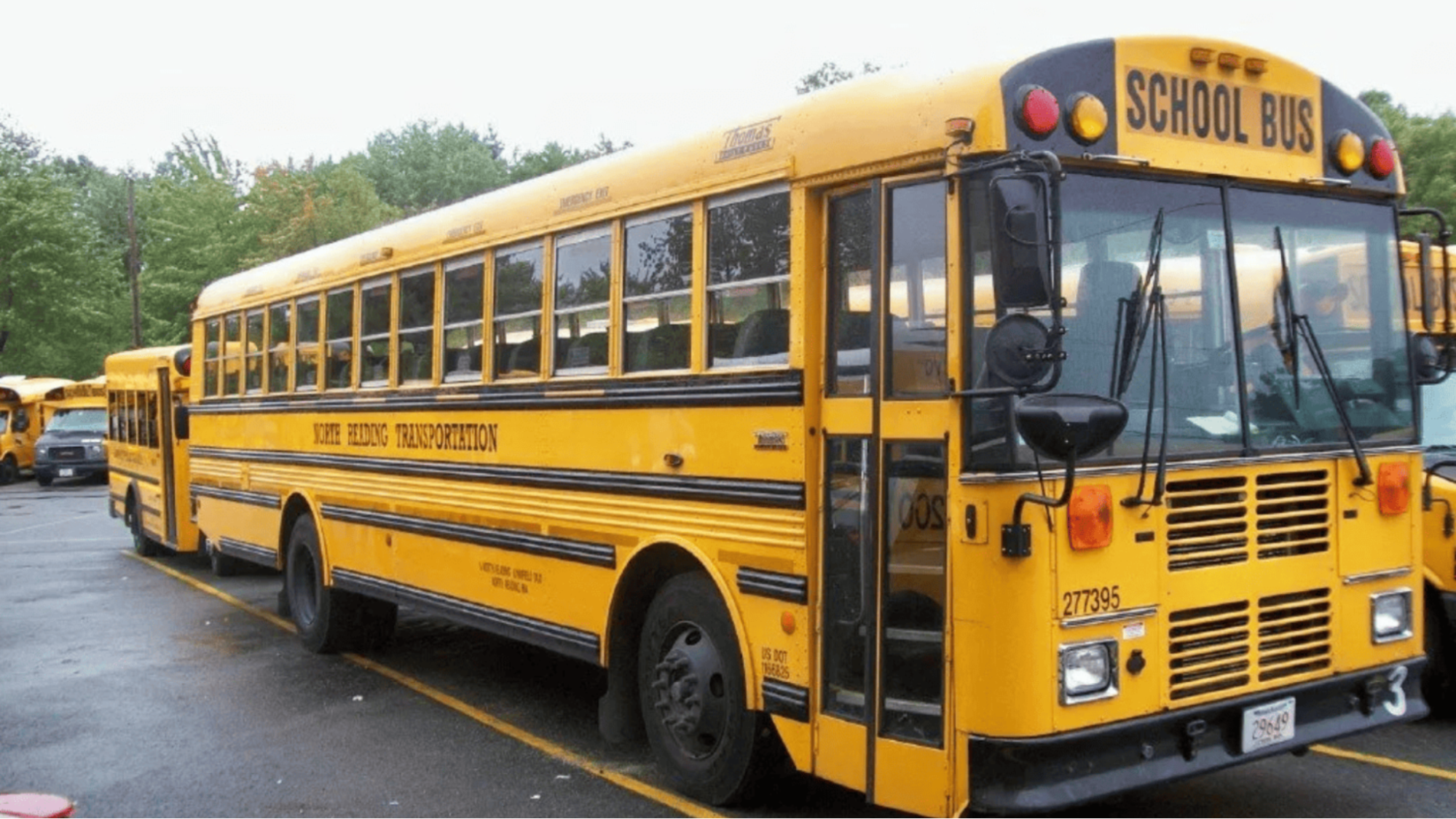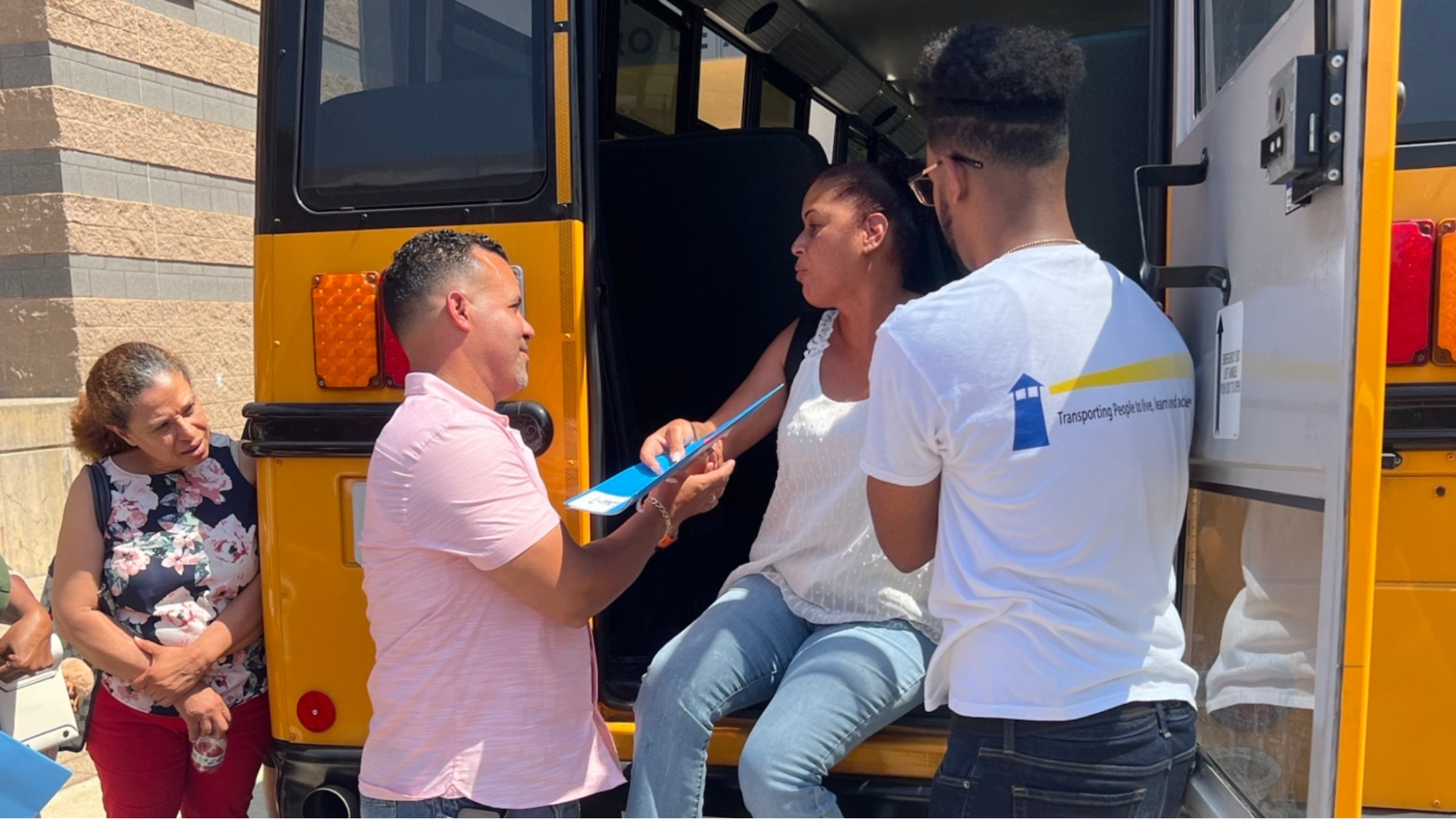Why Transportation Compliance Matters for School Events
Whether it’s a field trip, a sports scrimmage, or a statewide competition, every Massachusetts school event relies on safe and reliable transportation. But behind the scenes, compliance is what makes these trips possible. Meeting state and federal standards not only protects students, staff, and communities but also ensures smooth operations that parents and schools can trust.
At NRT, we’ve partnered with districts across Massachusetts for decades. We know that transportation compliance for MA school events is more than checking boxes — it’s about creating safe, predictable systems that allow students to focus on learning and teamwork while schools stay confident in their planning.
Key Compliance Areas Schools Must Prioritize
Driver Training & Certification
Drivers are the foundation of every safe trip. Massachusetts requires that all school bus drivers:
- Hold the correct commercial driver’s license (CDL) with school bus and passenger endorsements.
- Complete pre-service training on student safety, emergency procedures, and Massachusetts traffic laws.
- Stay current through ongoing refresher courses and periodic evaluations.
Well-trained drivers not only meet compliance standards but also reduce risks during school trips. From handling high-traffic drop-off zones to assisting students with special needs, training prepares drivers for real-world challenges.
Vehicle Safety Standards
Compliance begins before a bus even leaves the yard. Massachusetts regulations require:
- Daily pre-trip inspections logged by drivers.
- ADA-compliant equipment such as lifts and securement systems for students with mobility needs.
- Documented maintenance schedules that meet or exceed manufacturer and state guidelines.
Schools can consult the Massachusetts Department of Elementary and Secondary Education’s student transportation guidance for official requirements. At a national level, the National Highway Traffic Safety Administration’s school bus safety standards offer additional best practices districts can adopt. Together, these resources give schools a framework for consistent, compliant operations.
Documentation & Communication
For compliance, it’s not enough to do the work — schools must also document it. Clear records provide accountability and reassurance. Schools should:
- Keep updated files of routes, driver certifications, and inspection reports.
- Share transportation details with parents, including pickup times, bus numbers, and chaperone assignments.
- Maintain communication logs that track safety concerns or changes in schedules.
Transparent documentation builds trust with families and protects schools in case of an audit or incident.
Contingency Planning
Compliance also means preparedness. Even the best plans can face last-minute disruptions — whether it’s a driver absence, a bus breakdown, or unexpected weather. A strong compliance plan includes:
- A roster of backup drivers who are trained and ready to step in.
- Spare buses on standby during large events.
- Alternate routes mapped out in case of road closures or detours.
Just as athletic directors create game-day strategies, transportation coordinators should think ahead to avoid last-minute confusion. Our recent blog on late-summer sports travel logistics in Massachusetts shows how buffer time, equipment management, and safety checks can keep school events running smoothly even under pressure.
Building Compliance into Event Logistics
Schools that succeed with compliance take a proactive approach, not a reactive one. Practical steps include:
- Coordinating Early with Venues: Confirm loading areas, parking permits, and arrival times.
- Preparing for Seasonal Factors: In fall and spring, New England weather can shift quickly, requiring reroutes or safety adjustments.
- Aligning Schedules with School Calendars: Big events like testing weeks or sports tournaments may impact driver availability.
By integrating compliance into planning, districts avoid scrambling and can guarantee that buses, staff, and students are where they need to be.
Why Compliance Protects Students and Schools
Transportation compliance isn’t just about avoiding penalties — it’s about safety, equity, and trust. Schools that prioritize compliance:
- Reduce liability risks by following state and federal laws.
- Strengthen parent confidence by showing commitment to student well-being.
- Support inclusion by ensuring students with disabilities have equal access to trips and events.
A single missed compliance step can create ripple effects that go well beyond one trip. For example, if a bus skips its daily inspection, a small mechanical issue could turn into a breakdown on the road with dozens of students on board. This not only raises safety risks but also disrupts schedules, frustrates parents, and draws scrutiny from the community.
Even minor lapses — like letting a driver’s certification lapse or failing to notify families of route changes — can erode confidence and create bigger problems for schools.
By contrast, strong compliance practices build trust and a culture of safety. When buses are inspected regularly, drivers are trained, and families are kept informed, schools gain a reputation for reliability. Parents know their children are safe, students arrive ready to learn or compete, and administrators avoid unnecessary risks.
Compliance also supports equity: meeting ADA requirements ensures students with mobility needs share the same opportunities as their peers, reinforcing both safety and inclusion.
The NRT Approach to Compliance
At NRT, we believe compliance and care go hand in hand. Our teams work closely with Massachusetts schools to:
- Train and certify drivers in state and federal standards.
- Maintain a modern fleet with ADA accessibility and rigorous inspection schedules.
- Provide documentation support that makes audits and parent communications seamless.
- Offer contingency planning so districts never feel unprepared.
We view every school event as more than a trip — it’s an opportunity to build trust, ensure safety, and demonstrate reliability.
Final Thoughts
Transportation compliance for MA school events is the foundation of safe, successful field trips, sports outings, and academic competitions. By prioritizing driver training, vehicle inspections, documentation, and contingency planning, schools can deliver smooth experiences that families trust and students enjoy.
At NRT, we partner with districts to make compliance simple, effective, and dependable. From routine daily routes to large-scale events, our focus is always the same: safe students, confident schools, and peace of mind for families.
Ready to strengthen your school’s transportation compliance? Contact NRT today to learn how our expertise can support your next event.







